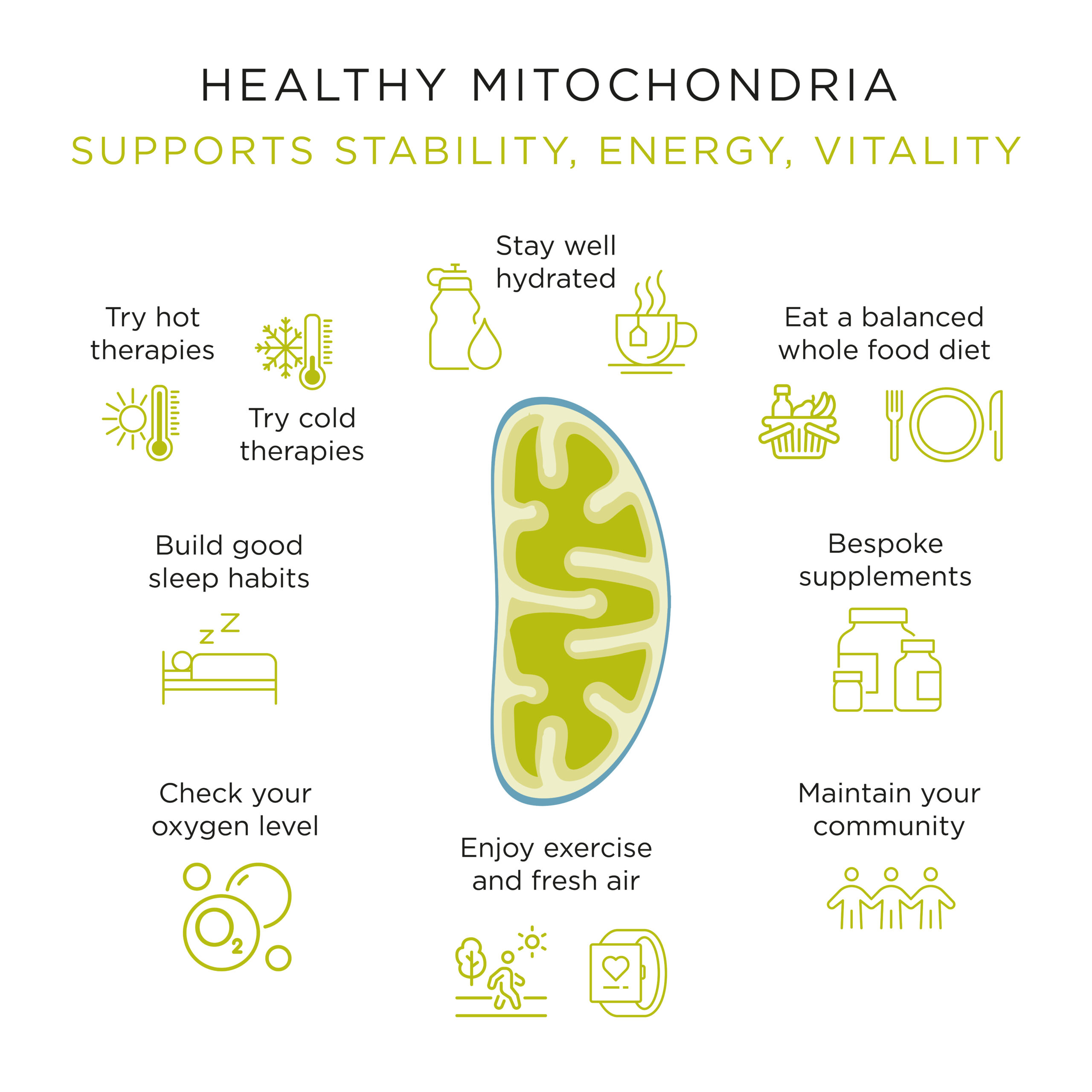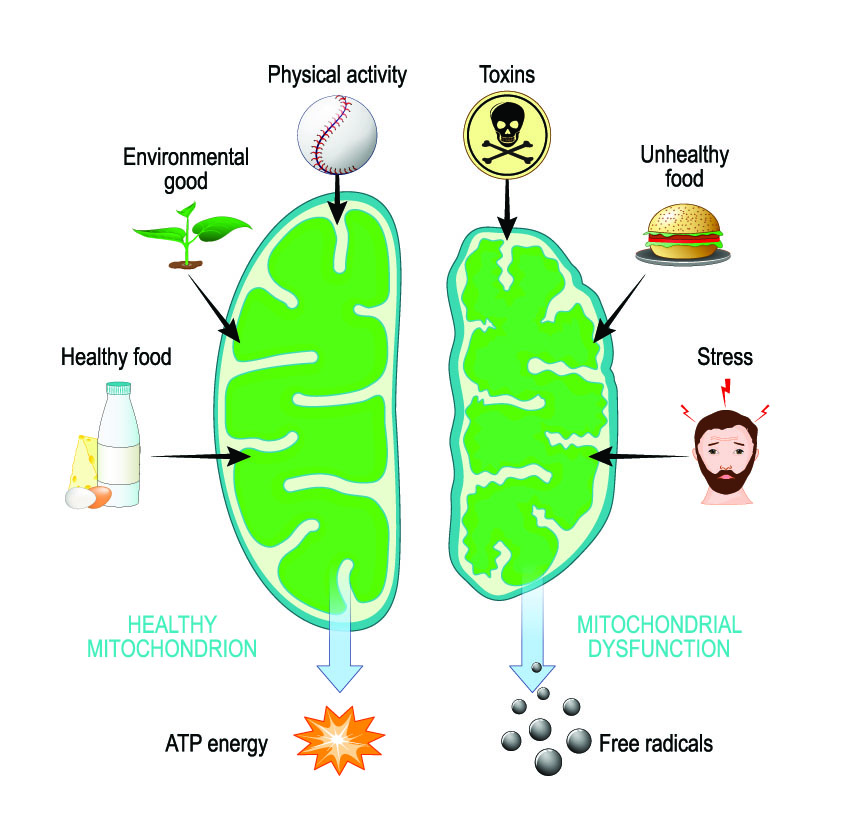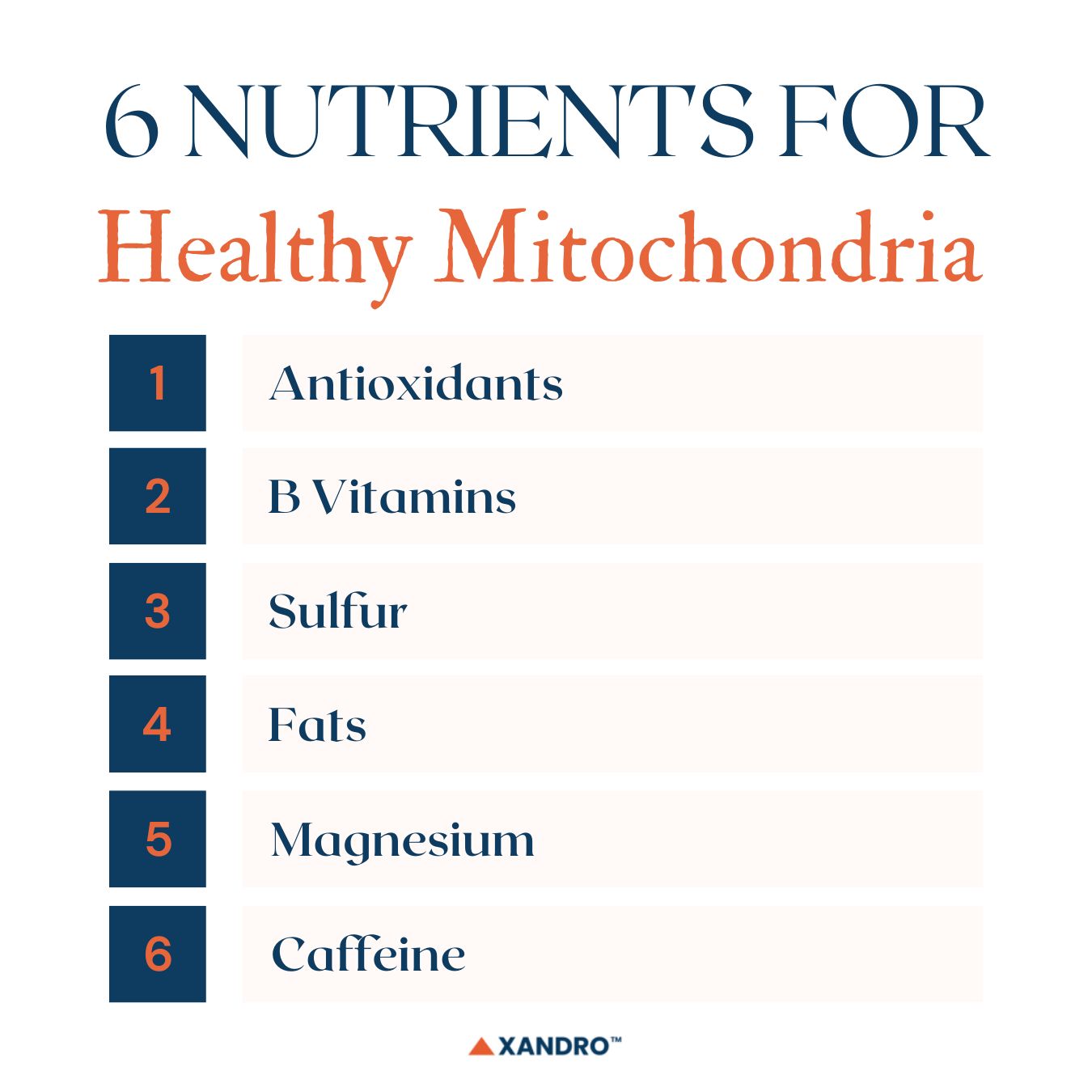How To Improve Mitochondrial Function Naturally

In an era defined by chronic fatigue, escalating rates of age-related diseases, and a pervasive quest for enhanced vitality, a fundamental aspect of cellular health is often overlooked: mitochondrial function. These microscopic powerhouses, residing within almost every cell in our bodies, are responsible for generating the energy that fuels life itself. When mitochondria falter, the consequences can be far-reaching, impacting everything from cognitive performance to physical endurance.
This article delves into the science-backed strategies for naturally enhancing mitochondrial function. It explores the lifestyle modifications, dietary interventions, and targeted supplementation protocols that can revitalize these cellular engines, leading to improved energy levels, enhanced overall health, and a potential buffer against the ravages of aging. We will navigate the complex landscape of mitochondrial health, providing actionable insights grounded in scientific evidence.
Understanding the Mighty Mitochondria
Mitochondria are often described as the cell's power plants. They take in nutrients and oxygen and convert them into adenosine triphosphate (ATP), the primary energy currency of the cell. This intricate process, known as cellular respiration, is vital for all bodily functions, from muscle contraction to brain activity.
Beyond energy production, mitochondria also play crucial roles in calcium signaling, apoptosis (programmed cell death), and the regulation of reactive oxygen species (ROS). Dysfunctional mitochondria are implicated in a wide range of diseases, including Alzheimer's, Parkinson's, type 2 diabetes, and cardiovascular disease, according to research published by the National Institutes of Health (NIH).
Lifestyle Interventions for Mitochondrial Boost
Embracing Regular Exercise
Exercise is arguably one of the most potent natural mitochondrial boosters. Studies have shown that both endurance and resistance training can increase mitochondrial biogenesis, the process of creating new mitochondria, particularly in muscle tissue. A 2012 study in the journal Aging Cell demonstrated that exercise effectively reverses age-related declines in mitochondrial function.
Dr. David Sinclair, a renowned longevity researcher at Harvard Medical School, emphasizes the importance of physical activity for maintaining mitochondrial health. "Movement is key," he states, "It signals to your cells that they need to produce more energy."
Prioritizing Sleep Hygiene
Sufficient and restful sleep is crucial for mitochondrial health. Chronic sleep deprivation disrupts mitochondrial function and increases oxidative stress. Aim for 7-9 hours of quality sleep each night, establishing a consistent sleep schedule to regulate your circadian rhythm.
Creating a dark, quiet, and cool sleep environment is essential, along with avoiding caffeine and alcohol before bed. SleepFoundation.org offers comprehensive guidance on optimizing sleep hygiene.
Managing Stress Effectively
Chronic stress can wreak havoc on mitochondria. When the body is constantly in a "fight-or-flight" state, it produces excessive amounts of cortisol, a stress hormone that can damage mitochondria. Techniques like meditation, yoga, and deep breathing exercises can help mitigate the negative impact of stress on cellular energy production.
Dietary Strategies to Fuel Mitochondrial Function
The Power of a Nutrient-Dense Diet
A diet rich in antioxidants, vitamins, and minerals is essential for supporting mitochondrial health. Focus on consuming a variety of colorful fruits and vegetables, lean proteins, and healthy fats. The USDA's MyPlate guidelines provide a useful framework for building a balanced and nutrient-rich diet.
Specific nutrients like Coenzyme Q10 (CoQ10), L-carnitine, and B vitamins are particularly important for mitochondrial function. These nutrients play key roles in the electron transport chain, the process by which mitochondria generate ATP.
Intermittent Fasting and Caloric Restriction
Intermittent fasting (IF) and caloric restriction (CR) have been shown to promote mitochondrial biogenesis and improve mitochondrial efficiency. These dietary strategies induce mild cellular stress, which triggers adaptive responses that enhance mitochondrial function. Research published in The New England Journal of Medicine supports the potential benefits of IF and CR for improving metabolic health and lifespan.
However, it's crucial to approach IF and CR with caution and consult with a healthcare professional, especially if you have any underlying health conditions. Dr. Valter Longo, a leading researcher in the field of longevity, advocates for a personalized approach to dietary interventions.
The Ketogenic Diet: A Mitochondrial Fuel Source
The ketogenic diet, a high-fat, low-carbohydrate diet, forces the body to switch from burning glucose to burning ketones for fuel. Ketones are produced by the liver from fat and are a highly efficient fuel source for mitochondria. Studies have shown that the ketogenic diet can improve mitochondrial function in the brain and may be beneficial for individuals with neurodegenerative diseases.
Targeted Supplementation for Enhanced Mitochondrial Health
Coenzyme Q10 (CoQ10)
CoQ10 is a powerful antioxidant that plays a crucial role in the electron transport chain. Supplementation with CoQ10 can improve mitochondrial function and reduce oxidative stress. It is particularly beneficial for individuals taking statin medications, which can deplete CoQ10 levels.
PQQ (Pyrroloquinoline Quinone)
PQQ is another potent antioxidant that supports mitochondrial biogenesis and protects mitochondria from damage. Research suggests that PQQ can improve cognitive function and reduce inflammation.
Resveratrol
Resveratrol, a polyphenol found in grapes and red wine, has been shown to activate SIRT1, a gene that promotes mitochondrial health and longevity. Resveratrol may also improve exercise performance and protect against age-related diseases.
Important Note: Always consult with a healthcare professional before starting any new supplement regimen, especially if you have any underlying health conditions or are taking medications. Supplements should be used as a complement to, not a replacement for, a healthy lifestyle.
Looking Ahead: The Future of Mitochondrial Medicine
The field of mitochondrial medicine is rapidly evolving. Researchers are exploring novel therapies that target mitochondrial dysfunction in a variety of diseases. This includes the development of drugs that can enhance mitochondrial biogenesis, improve mitochondrial efficiency, and reduce oxidative stress.
As our understanding of mitochondrial health deepens, we can expect to see even more effective strategies for naturally enhancing mitochondrial function and promoting overall well-being. By embracing the lifestyle interventions, dietary strategies, and targeted supplementation protocols discussed in this article, we can take proactive steps to revitalize our cellular engines and unlock our full potential for health and longevity.


















